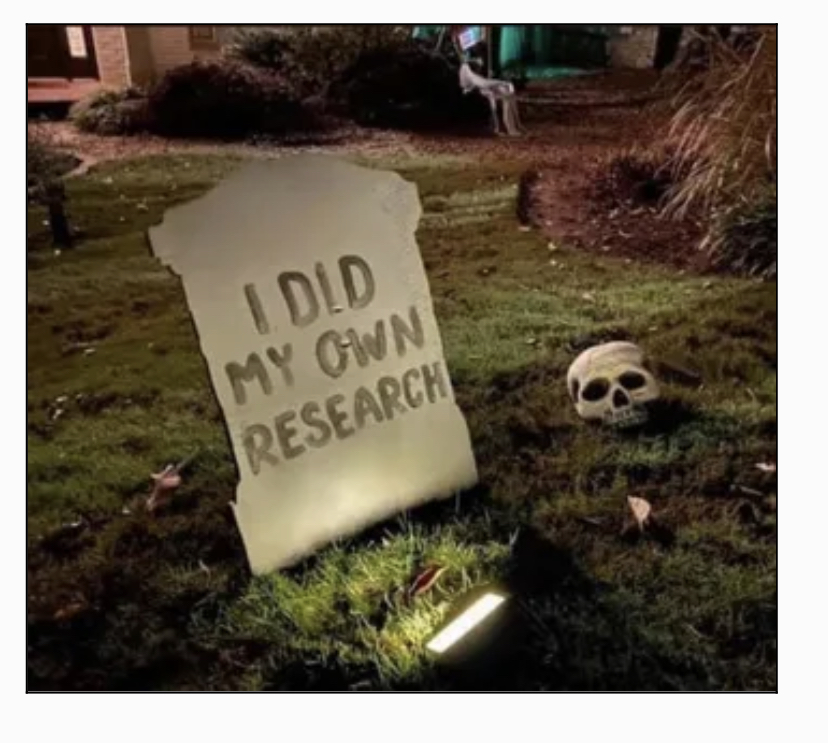
When a scientist speaks of research, he or she is referring to a years-long systematic process of collecting data, testing hypotheses, and going where the evidence leads. This is done objectively via methods that are explained to fellow scientists, who then attempt to replicate or contradict the findings. When submitting for peer review, those conducting the research will outline their findings, data sets, and statistical analyses, then submit it all for peer review.
By contrast, the guy who exhorted us to “Wake Up Sheeple” in a message I saw plastered to his vehicle has a different take on the matter. When he claims to have done his research, he means he has utilized a search engine, then clicked on the first link which confirmed his bias. For him, peer review is having his likeminded friends take a look at the YouTube link he messaged them.
This difference was starkly illustrated by Flux writer Melanie Trecek-King, who explained, “Real research is about trying to prove yourself wrong, not right.”
Hellaciously complex topics such as vaccines, climate science, and evolution require years of specialized learning and gaining an understanding broad terminology. There is also corroboration and debate with those in the field, while conducting genuine research as outlined above.
Because of this complexity, high-quality studies conducted by experts can arrive at different conclusions. Critics of science, such as the one with the rolling sheeple billboard, highlight these contradictions to insist that the field is unreliable.
This is to misunderstand what science is, that is to say a messy, self-criticizing, self-examining process aimed at finding the truth. While science has arrived at conclusions later shown to be wrong, it was further and better science that uncovered the error.
Similarly, when there are accusations that scientists are involved in a massive cover-up, this ignores that healthy conflict exists among scientists, and also glosses over the fact that the most revered scientists are those who upended conventional thinking.
The Scientific Method is crucial to all this, but perhaps no step in the process is as paramount as peer review. It would be one thing to convince two dozen sympathetic lay people that polio vaccines cause kidney failure. It would be quite another to successfully make such a case to hundreds of experts who will peruse your methods and findings.
Further, no single study will be the end-all. Conclusions must be repeatedly replicated before becoming a consensus.
As to this consensus, it does not refer to an agreeing of opinion based on confirmation bias or groupthink. As Trecek-King explained, scientific consensus is “the result of highly specialized experts independently evaluating the body of evidence and arriving at a similar conclusion.”
Any consensus remains open to challenge but a complete novice will not upend it by spending the afternoon on Google. Major changes to scientific thinking are announced by the Noble Prize Committee, they are not posted to a right-wing conspiracy theory site. Such sites insist that 10,000 scientists are eschewing fame, fortune, and career satisfaction in order to further enrich a shadowy cabal by staying silent.
Almost universally, experts are trusted. If persons are not trained in the field, they do not attempt to fix a malfunctioning intake manifold, they do not replace their home’s faulty wiring, and they do not perform their own gall bladder surgery. That some folks make an exception for vaccines, masking, and distancing would be comical were it not for the deadly results.
China, where the coronavirus originated and with four times the U.S. population, has yet to record its 5,000th COVID death. The U.S., meanwhile, just passed the grim 700,000 milestone. Put another way, the pandemic has shown Americans to be incapable of dealing with a national emergency requiring mild inconvenience.
